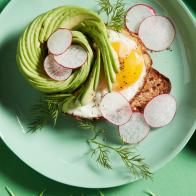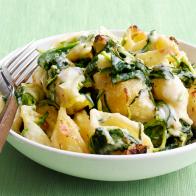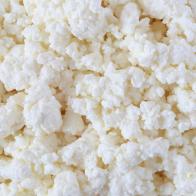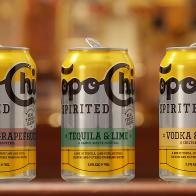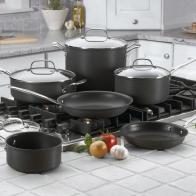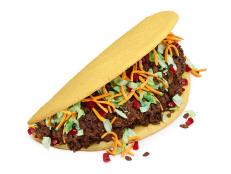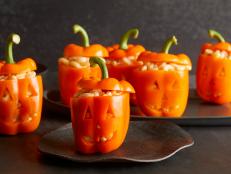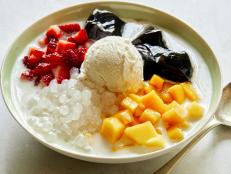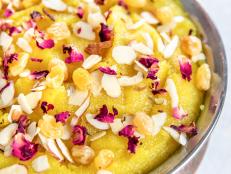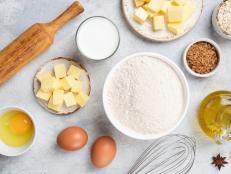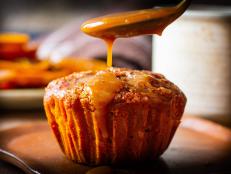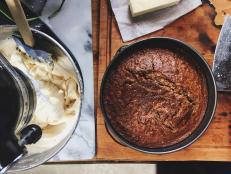What a Professional Pastry Chef Stood To Learn From Her Grandmother’s Recipe Book
Pain Patate taught me to rely less on rigidity, and pay more attention to my senses.
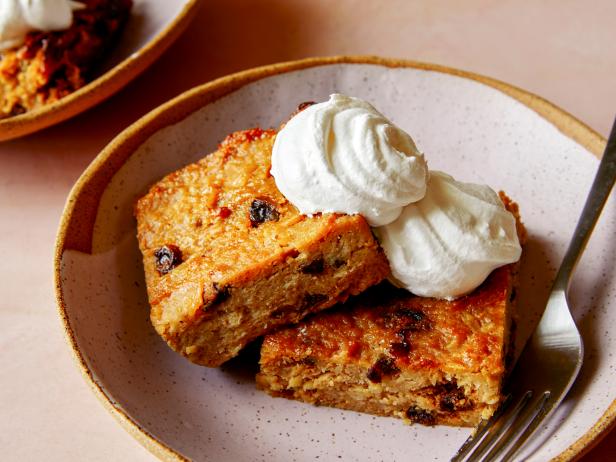
Teri Lyn Fisher
My aunts and uncles question my ability to cook traditional Haitian food on a regular basis — voice your opinion while tasting food enough and you’re bound to find yourself in the hot seat. Truth be told, I only cook Haitian food for special occasions or when I’m feeling particularly homesick. I learned everything I know mostly by doing schoolwork at the kitchen table while my mom cooked.
One summer, way before I had begun working in pastry, I spent a week at my grandma’s house with grand plans to learn how to make all my favorites of her iconic dishes. But when it came time to take note of spice ratios and the timing of each step, she would tell me to add until there’s enough and that the ingredients would tell me when they were finished. My type A brain couldn’t grasp what she meant. Everything seemed so nebulous – yet her method has proven precise enough that dishes, somehow, taste exactly the same every time.
Pastry is an exact science that I’ve learned over the past five years, to recognize by feel, look or smell; now, I don’t always need a thermometer to know when an anglaise is ready to take off the stovetop. I have finally begun to develop some of the skills that my grandma has completely relied on for decades. It no longer surprises me that, though without exact measurements, she can replicate dishes she learned from her mother without fail.
But what does fascinate me is that her foundation is a living piece of history, an oral cookbook passed from generation to generation. The base of my knowledge are recipes that are also passed down, except every detail is accounted for and concretely recorded. My mom has a grand total of one Haitian cookbook and has never referred to it while teaching or cooking — everything is from memory. Both my mother and grandmother learned everything they knew from their mothers, differing only in where they were raised and the personal histories contributing to their family oral recipes.
Early in the first pandemic summer, my grandma came to spend a week at my parents’ house. At the time, I was working on a cake for my friends’ wedding. That week, I focused on making sugar flowers to decorate the cake. I had molds and edible luster dust to make the flowers look as realistic as possible. I shaped each petal by hand, dried them in molds and slowly built each flower, one by one. My grandma kept mostly busy cleaning and cooking but would check in on my progress every day. She didn’t get to see the whole cake put together, but when I next visited, I showed her all of the photos. She said, “I understand why you do this.”
Until that moment, she hadn’t really taken stock of my career switch from the respected field of medicine to the unknown field of pastry. She had tried some of my desserts but had not seen my process up until that week. Since then, she has fully embraced my work and is always keen to see what I’ve been working on. So when I asked my grandma to teach me how to make Pain Patate, one of her signature desserts, she was beyond excited.
Grandma had already gotten started with my mom by the time I arrived at her house. She had grated the patate, a sweet potato-like yam. I jumped in and began grating the ginger while they reminded me to take care not to grate my fingers. As if I don’t work in a kitchen. As if I didn’t grate myself several times while trying to recreate the dessert on my own.
When she realized I had to take note of amounts to accurately write a recipe, she tried to switch to using measuring cups and spoons. Immediately, both my mother and I told her to stop. There was beauty in watching her eyeball everything. And if I was going to take a page from her cookbook, the least I could do is learn how to make the dessert the same way she did. I wanted to challenge myself to not lose the soul and flavor of the Pain Patate in the exacting of measurements. I estimated everything as she went — trying to use my knowledge of sight to guess the amount of each ingredient. She taught me what I should look for, smell and see at each stage and I thought I had a good handle on it. My foundation of pastry got me in the general vicinity, but I would soon find out that I was way off. Her cookbook required a different kind of touch that I had not yet exercised in my pastry career.
I failed at recreating Pain Patate three times before I finally ended up with something I could serve to my grandma with pride. My grandma sent me home with extra grated patate and I maintain not doing that step myself disqualified that whole attempt. The second version was too watery. The patate was grated too thick and I overcooked it on the stovetop before putting the entire mix into the oven. The third time, I attempted before going to work and I relied on a timer to interrupt my nap at the perfect times. I did not use any of my own senses throughout and suffered for it. The flavor was completely lacking and the texture was off. I was clearly more adept at the rigidity of pastry than the intuition and close listening that Pain Patate requires.
On my final attempt, I chose a day in which I had the luxury of time. Without haste, I finely grating the patate. I recognized the aroma of that step alone and built on the flavor using the smell of the batter. When I had the mix ready, I put it on the stovetop and watched and mixed it until it looked familiar. The aroma was unmistakable, and I knew I was on the right track. When the batter was golden, I took it off the stovetop and spread it into a baking dish and checked on it every five minutes. After 30 minutes, I took it out and knew I had finally succeeded. The key seemed to be a full body connection with the process; each time I relied on methods that work with traditional French pastry, the dessert lost its way.
The Haitian oral cookbook is a living thing. The recipes change based on where you are and which ingredients you have access to. Oral history is so variable in its retelling that many original details are lost with minor changes over the years. Our oral cookbook makes a function of that failure leaving each generation with a customized recipe to fit their means and surroundings, leaving just enough information to make some form of the same magic from kitchen to kitchen. The beauty of this recipe is its room for rewriting — it is adaptable to most anything, from ingredients, climates and bakers. Recipes for Pain Patate are as vast as the Haitian diaspora itself. Like a pentimento painting, the piece is already complete but will always hold space to be built upon. I am excited to record and share a page from my grandma’s cookbook — what is now a snapshot of the intersection between my grandma’s recipe, my mother’s and my own.
Brigitte is a pastry chef from New Jersey, now working at The Modern in New York. Her influences stem from her Haitian upbringing and her time studying pastry in Paris. She is currently getting reacquainted with tempering chocolate and enjoys spending her free time reading, "studying" television and trying new food spots.
Related Content:

